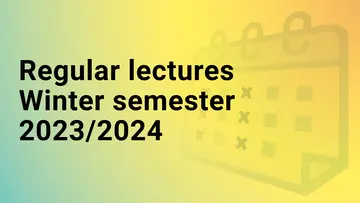This course is broadly concerned with differential equations driven by signals of low regularity. The prototypical example of such an equation is where is the function we are looking for, and is a function of low regularity (a "rough signal"). When has Hölder regularity in , a "classical" solution theory is known since the work of Young (1936). When is a Brownian motion (whose Hölder regularity is slightly below ), solution theories based on Ito (1942) or Stratonovich (1964) integration are available.
We are interested in the general case where may have arbitrarily low regularity: in this case, Terry Lyons' rough path theory (1997) gives a general, pathwise, solution theory; the only requirement is that we should beforehand give a meaning to the collection of iterated integrals of against itself.
The theory of rough paths lies at the intersection of analysis, probability, and algebra; the purpose of this course is to expose some of its (beautiful) ideas. The first few lectures will be dedicated to an elementary introduction to the analytical part of the theory in the case where has Hölder regularity in , up to a well-posedness statement for the equation above. The rest of the course will be organized in function of the interests of the audience.
Date and time infoThursday, 10.30-12.00 (Caution: Different room on October 19: G310)
Keywordsrough path theory; differential equations
PrerequisitesNone


